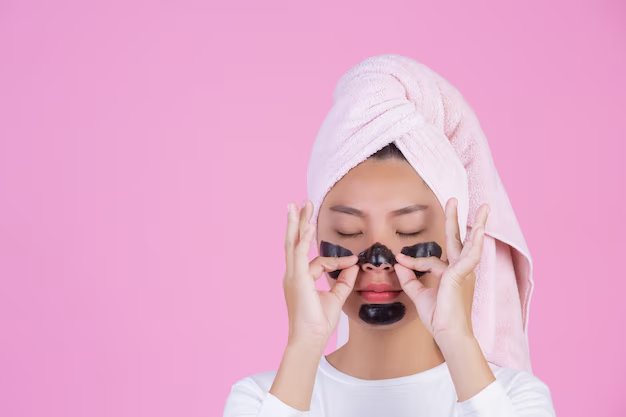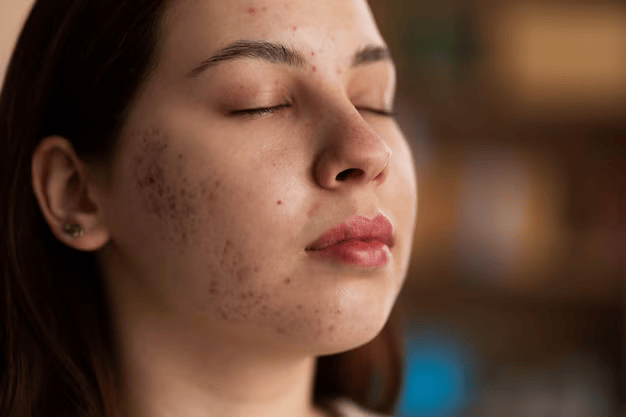Blackheads are a common skin problem that can affect anyone, regardless of skin type or age. They appear when pores become clogged with oil, dead skin cells, and other pollutants, turning dark when exposed to air. Unlike whiteheads, which are closed, blackheads are open to the skin’s surface, making them especially tricky to remove. However, with the right methods, you can minimize blackheads actually and safely. Here are the best ways to tackle blackheads without harming your skin.
Use a Gentle Chemical Exfoliant
One of the most useful ways to reduce blackheads is by containing a chemical exfoliant in your routine. Unlike physical exfoliants, which can be harsh on the skin, chemical exfoliants dissolve dead skin cells and oil that shows to blackheads. Look for products containing beta hydroxy acid (BHA), such as salicylic acid, which penetrates plunging into the pores to break down oil and remove impurities.
Salicylic acid is extremely effective for blackheads because it’s oil-soluble, allowing it to enter the pore and clean it from within. Start with a lower concentration, around 1-2%, and apply it a few times a week to avoid irritation. Over time, this will help reduce existing blackheads and prevent new ones from forming.
Try a Clay Mask Weekly
Clay masks, mainly those made with kaolin or bentonite, are powerful tools for absorbing excess oil and pulling out impurities. Using a clay mask once or twice a week can help clear out pores and minimize blackheads. Clay masks are excellent for oily and combination skin types, as they help control oil production and keep pores from becoming blocked.
To use a clay mask, apply it to a clean, dry face and leave it on for about 10-15 minutes, or until it’s barely dry but not completely hardened. Rinse with lukewarm wetness and pat your skin waterless. Even use will leave your skin looking clearer and more refined, making blackheads less apparent.
Double Cleanse in the Evening
If you wear makeup or sunscreen daily, two cleansing is essential to keep your pores clean and free from blackheads. Double cleansing concerns using an oil-based cleanser first to break down makeup and oil, followed by a water-based cleanser to clear any remaining residue.
Oil-based cleansers dissolve oil-based impurities more effectively than traditional cleansers alone, reducing the chance of blackhead formation. Choose a gentle, non-comedogenic oil cleanser that won’t clog your pores. After the oil cleanser, use a mild foaming or gel cleanser to simply cleanse your skin.
Don’t Forget Pore Strips (But Use Sparingly)
Pore strips can deliver quick, visible results by removing blackheads from the surface of the skin. While they don’t stop blackheads from reappearing, they’re useful for quick fixes before a big event or special occasion. However, use pore strips sparingly, as they can occasionally irritate the skin if overused.
To use pore strips effectively, place them on a clean, watery nose or other area with blackheads, and let them dry. Gently peel off the strip, starting from the edges, to release the impurities. Make sure to follow up with a hydrating product afterward to help the skin.

Apply Retinoids for Long-Term Prevention
Retinoids are a strong ingredient for controlling and treating blackheads. They work by running up cell turnover, helping to keep pores clear of dead skin cells and oil. Over-the-counter retinoids like adapalene are suitable for most skin types, but if you’re new to retinoids, it’s best to start gradually to avoid irritation.
Apply a pea-sized amount of retinoid cream to clean, dry skin in the evening, beginning with just a few times a week. As your skin adapts, you can gradually increase usage. Familiar retinoid use will improve skin texture and minimize blackheads over time, creating a smoother, more even complexion.
View Professional Treatments
If your blackheads are stubborn or vast, professional treatments like chemical peels or microdermabrasion can help. A dermatologist or esthetician can provide medicines that target blackheads more deeply, clearing clogged pores and enhancing overall skin health. Chemical peels, for example, use stronger exfoliants to dissolve impurities, while microdermabrasion gently exfoliates the skin’s surface, removing dead skin and oil buildup.
Closing Blackheads can be persistent, but with a consistent skincare routine and the right products, you can loosen and control them effectively. Incorporate gentle chemical exfoliants, clay masks, and retinoids into your regimen for long-term effects. Don’t forget to cleanse properly and consider occasional professional remedies if needed. With patience and care, you’ll gain a clearer, more refined complexion and say goodbye to blackheads.







